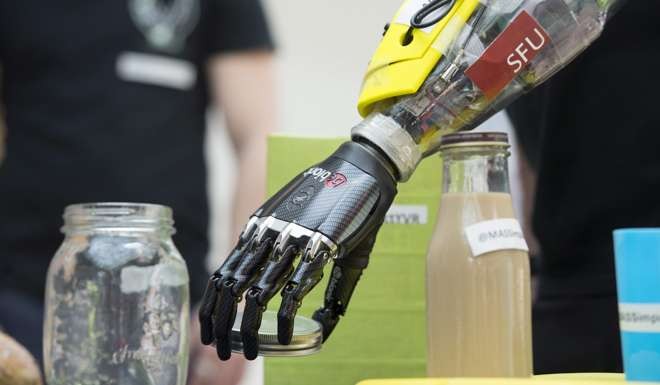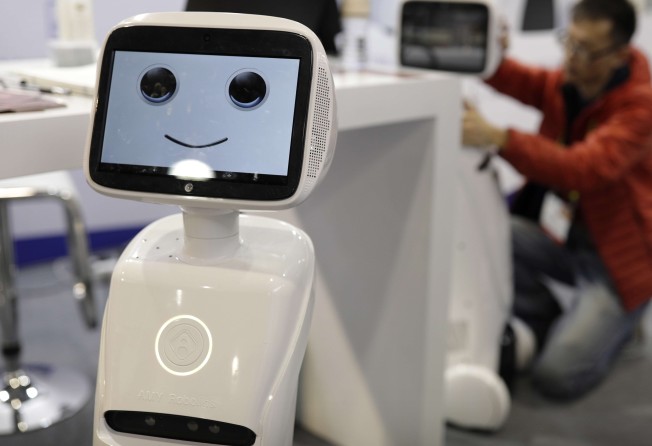
The robots are coming, but they won’t be job killers

Major cities like Hong Kong, London and New York are predicted to face unemployment rates of more than 80 per cent by 2030 when widespread adoption of artificial intelligence (AI) and robotics accelerates automation in virtually all industries, according to an outspoken Hong Kong based venture capitalist ...
Business, February 1
I don’t know what artificial intelligence makes of this but just a modicum of normal human intelligence will quickly tell you that it is not true.
I am not referring here to the advance of robotics. That part, lamentably, is probably correct. Lamentably, I say, as I remain far from convinced that robots can make us humans any more content with our lives.
But what is not true is that automation will bring about 80 per cent unemployment rates. Think about this a little.
The reason for automating rather than going with human labour is to lower the costs of production. It may also be to meet standards of quality that unaided human hands cannot meet but this was so even when a caveman first invented the chisel. It is still gratification at acceptable cost that drives these advances.
And if the cost to you of the goods you want is lower than it was previously then you have more of your income available for spending than you did previously and you can spend it on things that you would not otherwise have bought.
This in turn creates jobs in the economy. You create jobs whenever you spend money, however you spend it. Thus any loss of employment through automation is recreated as other forms of employment when you spend the money you saved as a benefit of automation.
There are times it does not quite work this way, of course, production of weaponry being an obvious example. Advances (if they can be called so) in the mega-tonnage of atom bombs are pure waste of effort if not used and, if used, create net job loss through death.
But what most people have in mind when they talk of jobs lost through automation is the experience they or friends have had of losing a good job and not being able to find another as their skills are no longer required.
There is no denying that it happens. Loss of work through dislocation of skills or job requirements is a price of automation and the burden of it falls heavily on older and lesser skilled people. Regrettable as this is, however, it does not say there are fewer jobs in total, only different ones.

Or think of miners hacking out coal by pick-axe in extremely dangerous conditions underground. Would we really want to deny their successors modern mining machinery?
I don’t know precisely what new jobs will come from automation but I can be reasonably sure that they will be mostly service jobs. This has certainly been the history of the United States over the last 70 years, as the chart shows, and the Hong Kong data record generally shows the same trend.
We can also know from one obvious example of history that technological advance brings change rather than net loss of employment. Before the industrial revolution some 90 per cent of the world’s population lived directly from agriculture. That figure is now perhaps 10 per cent.
But do we now have 80 per cent unemployment around the world as a result?
No more need we fear that we will have 80 per cent unemployment in 2030 as a result of robotics.
